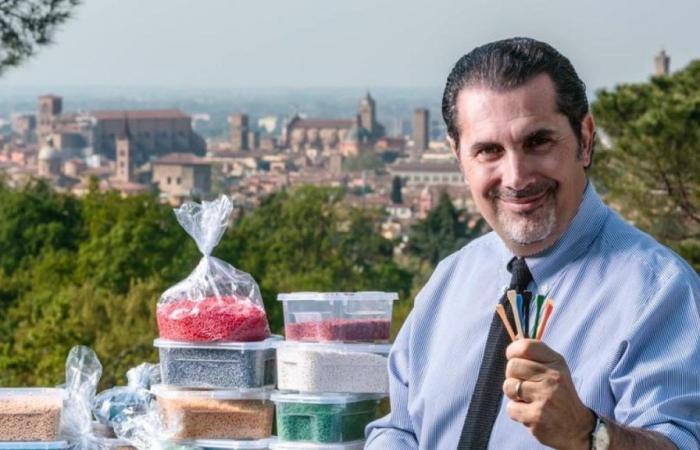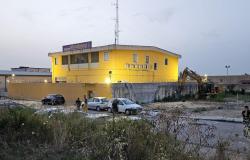
OfOlivio Romanini
Bologna, rise and fall of the start-up that wanted to save the world from plastic, and of its founder Astorri. The story told in «L’Unicorno», the investigative book by «Corriere» journalists Marco Madonia and Gianluca Rotondi
A great story that contains many others, the incredible parable of a start-up who wanted to clean the world of plastic, who managed to capitalize more than a billion euros on the stock market and who, after the crash and bankruptcy, left the tire dealer with a thousand euros to pay, among many other debts.
The story of «The Unicorn»
A detailed, passionate account of a rise and a fall. In the 308 pages of The unicorn published by Baldini+Castoldi, Marco Madonia and Gianluca Rotondi, journalists of the «Corriere di Bologna», they tell the incredible human and financial adventure of Marco Astorri, founder of Bio-On, and his great accuser Gabriele Grego, two novel faces, a plot that could perhaps inspire a film or television series. The Unicorn, in bookshops from today, Friday 21 June, will be presented on 24 June in Rome and then in Bologna, on Tuesday 25 June in Salaborsa at 6pm with the journalist Alberto Nerazzini. The book bases its solid foundation on a hundreds of interviews and discussions and on the reading of thousands of pages of documents judicial reports from Consob to those of the bankruptcy trustees, from defense briefs to investigations by the judicial police. Madonia and Rotondi, two names that our readers know well, already had a great knowledge of the intricate story having documented it in dozens of articles for this newspaper the whole story of the Unicorn (the mythological animal is synonymous with a company worth over a billion, a definition coined in 2013 by venture capitalist Alieen Lee).
«The Google of plastic»
It is impossible to condense in a few lines the story which is at the same time an essay, a novel and a journalistic investigation. So let’s settle for illuminating a few pieces of history. Let’s start with Marco Astorri, San Giorgio di Piano, Aldini Valeriani, then Sirani, the school for graphic designers, the bus to go to school, the harvesting of beets in the summer to earn a little money, the voracious reading of encyclopedias at home. Someone who says he doesn’t have time to go on holiday and wants to do something big. The ticket to Paradise is a trip to Hawaii from Professor Yu and the purchase of a 400 thousand dollar patent to produce bioplastic from sugar waste, “God’s flour”. The great adventure began: the idea of selling the licenses to build factories to produce that powder, the cult of confidentiality, the challenge of producing Starck’s lamp «which was previously a beetroot», media interest, stock market listing. In those days when Bio-On became “the Google of plastic” a consultant told him: “If this thing works in three years you’ll be flying around in a helicopter, otherwise you’ll end up in jail.”
The moment of the factory
Astorri and his adventure companions have the sun on their foreheads, he buys James Bond’s Aston Martin for 622 thousand euros, and then thinks that the time has come for the 3,700 square meter factory, «the factory that will change the world» because it will produce clean plastic. The money arrives from the banks but more and more is needed and the problems begin. In the novel it is the time of the bad guys, at least for him. He begins to talk about a bubble, “of a company worth a hundred times its turnover”. The short fans enter the scene, smell the blood and bet on the end of Bio-On. Many people try, Gabriele Grego of the Quintessential fund succeeds. He is a former soldier of the Israeli army, he is not the type to be scared. All he needs is a video on YouTube, he says that Bio-On could be the new Parmalat, he defines it as “a house of cards” and a set of empty boxes. On the morning of July 24, 2019, the stock burned 760 million on the stock market. It’s the beginning of the end.
The bankruptcy process
Cesare, the friend who represents many traveling companions and who the authors choose as the narrator of the book, also gives up: he sells the shares while there is still time. The rise and fall. The financiers arrive and arrest everyone, Astorri ends up under house arrest, the board of directors is investigated, 150 million euros are seized, and bank accounts are blocked. The story of Bio-On ends on October 23, 2019. The bankruptcy process remains, the two great challengers remain. Grego who in the end didn’t even make a million from his raid but who says that “I would have done it for free because they were corporate sociopaths”. And then he remains, Astorri who wonders if by chance he has become the “Madoff of the lowlands” but he is ready to fight because “the real rough gem is me” and “when they agree with me, I can even die”. If there is something heroic in our lives it is always found in the trajectory with which we fall, never in the ascents. And The Unicorn, like all successful works, tells the story of the downfall of a man who only wanted to be special.
Go to all the news from Bologna
Subscribe to the Corriere di Bologna newsletter
June 21, 2024 (changed June 21, 2024 | 08:59)
© ALL RIGHTS RESERVED





